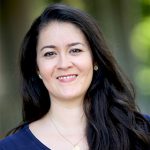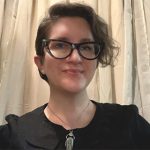Check out the new website for the UConn Drag Queen (DQ) Research Project: https://dragqueenresearch.hdfs.uconn.edu/ led by Brian Chapman and Laura Donorfio, with collaboration from Alaina Brenick and others. The team especially wants to acknowledge the efforts of Emma Chamberlin (HDFS BS ’24), who was integral in designing the website!
Faculty
Marlene Schwartz co-authored new op-ed in Health Affairs
 Professor Marlene Schwartz co-authored a new op-ed in Health Affairs titled, “Sodium Reduction Is A Proven Strategy That Saves Lives—More Work Is Needed To Hold Industry Accountable”
Professor Marlene Schwartz co-authored a new op-ed in Health Affairs titled, “Sodium Reduction Is A Proven Strategy That Saves Lives—More Work Is Needed To Hold Industry Accountable”
Early Childhood Specializations at UConn Waterbury
Check out the recent UConn Today article on the regional campuses, which highlights the addition of the Early Childhood Specializations at UConn Waterbury! Read the article here https://today.uconn.edu/2024/08/uconns-regional-campuses-gear-up-for-exciting-new-academic-year/
Rebecca Puhl’s work featured in Rudd/CSCH brief
Professor Rebecca Puhl’s work on reducing weight stigma was recently featured in a research brief by the Collabatory on School and Child Health. Read the article here https://csch.media.uconn.edu/wp-content/uploads/sites/2206/2024/08/Rudd-CSCH-Brief-Reducing-Weight-Stigma-Families-August-2024.pdf
Sarah Rendón García , HDFS Faculty Spotlight, September 2024
 Dr. Sarah Rendón García joined the HDFS faculty as an Assistant Professor in August 2023 and began teaching in HDFS in fall 2024. Born in Venezuela to Colombian parents, migration has been an integral part of her story from the very beginning. Her childhood unfolded across three countries, each contributing to her multicultural lens. At age 9, she and her family settled in Norwalk, Connecticut—a place she now calls home.
Dr. Sarah Rendón García joined the HDFS faculty as an Assistant Professor in August 2023 and began teaching in HDFS in fall 2024. Born in Venezuela to Colombian parents, migration has been an integral part of her story from the very beginning. Her childhood unfolded across three countries, each contributing to her multicultural lens. At age 9, she and her family settled in Norwalk, Connecticut—a place she now calls home.
Growing up as an undocumented young person profoundly shaped Sarah’s perspective. It fueled her unwavering commitment to working with immigrant communities. Her journey led her to delve into developmental psychology through diverse avenues: children’s television media, youth development, youth organizing, and early childhood intervention. Before pursuing her Ph.D. at Harvard University, Sarah worked with Child First—an evidence-based program focused on buffering toxic stress through positive caregiver-child relationships. Her educational journey includes an Ed.M. in Prevention Science and Practice from HGSE and a BA in Psychology and French from the College of the Holy Cross.
Sarah’s research focuses on mixed-status immigrant families originating from Latin America. She explores how both children and adults grapple with the implications of being undocumented in the United States. Caregivers and kids alike contribute to her empirical insights—whether independently, within caregiver-child dyads, or as a family unit. Generously funded by the NSF, Ford Foundation, and NAEd/Spencer Foundation Fellowships, her work sheds light on these complex, often overlooked experiences. Her approach is interdisciplinary, practical, and community-centered. She seeks to amplify voices, consider geographical contexts, and navigate sociopolitical ecologies—all while advancing our understanding of these individuals’ lives.
After the academic cap comes off, Sarah spends her days balancing family life, taking care of her two little ones and a sizable Bernedoodle with her husband. In her elusive free time, Sarah enjoys watercolor painting, tackling DIY projects, and watching TV series that make her shriek and laugh.
Marlene Schwartz interviewed for Washington Post article
 Professor Marlene Schwartz was interviewed for the Washington Post article, “Is there really such a thing as a healthy soda?” Spoiler alert – the answer is no.
Professor Marlene Schwartz was interviewed for the Washington Post article, “Is there really such a thing as a healthy soda?” Spoiler alert – the answer is no.
Alaina Brenick, HDFS Faculty Spotlight, August 2024
 Dr. Alaina Brenick is a scholar-activist dedicated to the interdisciplinary and translational approaches fundamental to the field of Human Development and Family Sciences. Drawing from social and developmental psychology, education, social work, and sociology, she is interested in identifying and examining individual, micro-, and macro-level factors that contribute to intergroup conflict, as well as the conditions necessary for reducing prejudice, discrimination, and victimization across development. Specifically, her research focuses on how diverse groups of children, adolescents, and young adults in the U.S. and in other regions of the world—sometimes with vastly different societal structures, norms, and expectations—experience, reason about, and respond to intergroup relations and bias-based victimization (e.g., discrimination, denial of rights, bullying, exclusion based on one’s group membership/identity). She is committed to translating her work into practice. Her work provides a fundamental knowledge base for creating contextually and developmentally appropriate intervention programs, designed to reduce individual prejudice and systemic oppression and promote social equity and positive intergroup relations.
Dr. Alaina Brenick is a scholar-activist dedicated to the interdisciplinary and translational approaches fundamental to the field of Human Development and Family Sciences. Drawing from social and developmental psychology, education, social work, and sociology, she is interested in identifying and examining individual, micro-, and macro-level factors that contribute to intergroup conflict, as well as the conditions necessary for reducing prejudice, discrimination, and victimization across development. Specifically, her research focuses on how diverse groups of children, adolescents, and young adults in the U.S. and in other regions of the world—sometimes with vastly different societal structures, norms, and expectations—experience, reason about, and respond to intergroup relations and bias-based victimization (e.g., discrimination, denial of rights, bullying, exclusion based on one’s group membership/identity). She is committed to translating her work into practice. Her work provides a fundamental knowledge base for creating contextually and developmentally appropriate intervention programs, designed to reduce individual prejudice and systemic oppression and promote social equity and positive intergroup relations.
Dr. Brenick is nationally recognized as a leader in DEIJ and anti-racism in developmental science. She is humbled to serve her premier professional organizations in this capacity; in 2020, Dr. Brenick was co-chair of the Society for the Psychological Study of Social Issues’ (SPSSI) annual meeting which was themed, Changing the System: Social Research and Action to Reshape the World We Live In. At SPSSI, Dr. Brenick is on the executive leadership team and helped develop and implement a code of conduct for inclusivity and belonging, secure a million-dollar National Science Foundation ADVANCE grant on Creating Inclusive Scientific Societies through Policies and Practices, publish a resource guide for responding to the War in Gaza, and co-edit a two-volume special issue of Critical Race Theory in the Study of Social Issues. This past year, she served on the planning committee as well as the dissemination committee for the inaugural Society for Research in Child Development (SRCD) Anti-Racism in Developmental Science Summit. Dr. Brenick has also been tapped to serve SRCD as co-chair for their Anti-Racism Taskforce, as Advisory Board Member for their Data Tracking Initiative, and as a member of the Implementation Taskforce. Through these roles, Dr. Brenick has helped define the foundational Anti-Racism Principles for the society, assess bias in the society’s publications, and devise a plan to implement anti-racist and DEIJ principles and practices. Additionally, Dr. Brenick is the chair of the Inclusion, Equity, and Social Justice committee for the Society for Research on Adolescence. Dr. Brenick has been an invited presenter on this work at conferences for all of these organizations.
Another way in which Dr. Brenick engages as a scholar-activist has been to develop assessments appropriate for the minoritized groups with whom they are used. She believes that when working with minoritized groups, especially dealing with topics of social inequity and victimization, it is critical to accurately reflect and assess their lived experiences. For example, leading a team entirely comprised of sexual and gender minoritized folx (undergraduate, graduate, and post-doctoral), she engaged directly with the transgender, non-binary, and gender diverse community partners to develop a comprehensive measure of individual and institutional discrimination experienced by these communities. Previously, she worked directly with immigrant youth and their parents to develop a measure of bias-based bullying of immigrant youth. The goal of Dr. Brenick’s community engaged scholarship is to ensure these counternarratives are precisely represented and amplified in the field and in our institutional policies and practices.
Additionally, Dr. Brenick works to decenter the U.S. dominated ethnocentrism in the field of research. Across her career, including during her graduate studies, her post-doctoral training at Friedrich Schiller Universität in Jena, Germany, and her current work, Dr. Brenick has collaborated internationally. Applying a systemic approach to her research, she has explored not just the influences of schools, families, and peers, but also the larger socio-political and historical contexts of youth intergroup dynamics. Her work has assessed the hierarchical social structure of immigrant groups in Germany, children who had or had not been displaced by the Colombian civil war, and the ongoing relations between Palestinian, Palestinian Citizens of Israel, and Jewish-Israeli youth (recent publications: (Brenick, Zureiqi, et al., 2024; Brenick, Eadeh, et al., 2024).
An anti-racist perspective guides Dr. Brenick’s work, emphasizing foci on undoing systems of oppression. In the Middle East, she has designed and evaluated numerous multi-level prejudice reduction interventions. She has collaborated with Sesame Workshop to effectively implement media-based educational programing on Sesame Street to increase understanding of others and reduce prejudice among Palestinian, Palestinian Citizens of Israel, and Jewish-Israeli pre-kindergarteners. Dr. Brenick has also designed interventions that teach social-emotional skills such as empathy, or that provide opportunity for contact between Palestinian Citizens of Israel and Jewish-Israeli children, allowing them to get to know one another and build meaningful relationships with one another. These interventions have been tested longitudinally and in comparison to control groups; they been highly effective in reducing affective, cognitive, and behavioral prejudice and increasing positive bystander interventions in the face of discrimination toward the outgroup. Finally, Dr. Brenick and her colleagues designed a mindfulness intervention in which the ongoing conflict was not mentioned at all. This intervention helped Jewish-Israeli elementary students learn to care for the self, to care for others who were close to them, and then to care for others in general (even those they don’t like). The mindfulness intervention reduced affective prejudice and stereotyping and increased willingness for contact with the outgroup. Dr. Brenick’s intervention work shows great promise for anti-racist action even in the midst of ongoing conflict.
Finally, Dr. Brenick’s scholarship and activism are deeply connected to her mentorship model. She is dedicated to mentoring undergraduate students, especially first-generation students and students from underrepresented minority backgrounds (64% of her mentees). Her student mentees are integrally involved in her work, having co-authored 22 manuscripts and over 60 international and national conference presentations. Additionally, Dr. Brenick has sponsored or PI’ed eight small research grants awarded to her undergraduate mentees to promote their active and early engagement in research. In honor of her mentorship success, she was awarded the UConn Honors Faculty Member of the Year Award and nominated by her mentees for the Society for the Psychological Study of Social Issues Outstanding Teaching and Mentoring Award.
Dr. Brenick will always call the charm city, Baltimore, MD, her hometown. Another point of great pride for Dr. Brenick is that Lizzie’s food truck on campus has a veggie burger named for her. Additionally, she loves to garden and tends to over 40 indoor plants (and more every day), to eat when others cook, to knit and crochet—especially fun stuffed animals for her niblings, to take long walks while talking to good friends, and to travel and learn about new people and places. Dr. Brenick’s most important roles are as co-parent to Trent and as World’s Greatest Tanta to her many niblings
Rebecca Puhl featured in Scientific American article
 Professor Rebecca Puhl was featured in an article in Scientific American on how “people who are fat and healthy” may help us understand obesity. Read the article here: https://www.scientificamerican.com/article/people-who-are-fat-and-healthy-may-hold-keys-to-understanding-obesity/
Professor Rebecca Puhl was featured in an article in Scientific American on how “people who are fat and healthy” may help us understand obesity. Read the article here: https://www.scientificamerican.com/article/people-who-are-fat-and-healthy-may-hold-keys-to-understanding-obesity/
Marlene Schwartz featured in Educator Wellness Podcast
 Professor Marlene Schwartz featured in a Educator Wellness Podcast on the role of nutrition in education and overall wellbeing.
Professor Marlene Schwartz featured in a Educator Wellness Podcast on the role of nutrition in education and overall wellbeing.
HDFS graduate students and faculty will present at APA convention
Three HDFS graduate students and two HDFS faculty will be giving five presentations at the American Psychological Association (APA) Convention in August in Seattle, WA. See a list of all their presentations here.